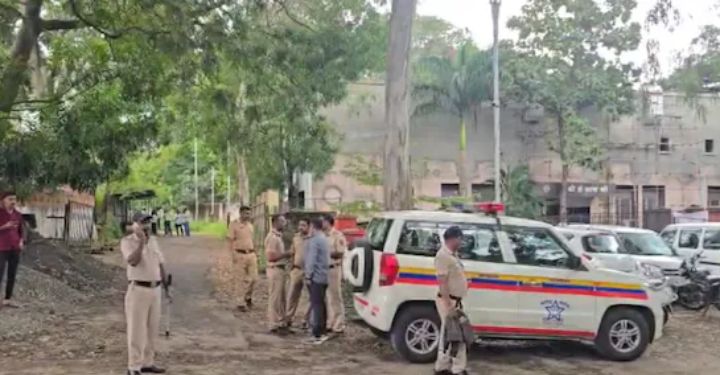
In a devastating turn of events that has shocked Maharashtra, a 28-year-old woman doctor posted in Satara district took her own life, leaving behind a four-page suicide note that details months of sexual assault, intimidation, and political coercion. The note, written partly by hand and partly on paper recovered by police, accuses a police sub-inspector of rape and names a Member of Parliament (MP) as among those who allegedly pressured her to alter medical reports and suppress the truth.
The case has reignited a national debate over women’s safety in government service, the accountability of law-enforcement agencies, and the influence wielded by politicians over public servants.
A promising career cut short
The victim, a government medical officer, was posted at the sub-district hospital in Phaltan, a semi-urban region in Satara. She was known among colleagues as diligent and soft-spoken, often working long hours in the emergency ward. According to her friends, she had been struggling with stress and isolation but never hinted at suicidal thoughts.
On a Thursday evening, she failed to report for duty. Hours later, hotel staff discovered her body in a rented room where she had checked in alone. Police recovered a four-page letter from her bag and found part of a note scrawled on her left palm, listing names of her alleged abusers. Investigators have since filed a case under Section 376 (rape) and Section 306 (abetment to suicide) of the Indian Penal Code.
The note: A cry for justice
The letter reads like a document of despair. The doctor alleged that a sub-inspector from Phaltan Rural Police raped her multiple times over a period of five months. She claimed that he used his authority to summon her under the pretext of medical duties, only to assault her. “He raped me four times,” she wrote. “He humiliated me, abused me, and when I resisted, he threatened to ruin my career.”
The note further names an Assistant Police Inspector and another man, reportedly the son of her landlord, for abetting the harassment. But the most explosive allegation involves a sitting Member of Parliament who, according to the letter, pressured her to falsify medical and post-mortem reports and to “cooperate” with police officers despite knowing about the sexual violence.
She described feeling cornered, saying she had written complaints to her superiors and to a Deputy Superintendent of Police but was met with silence. “If something happens to me, you will know who is responsible,” she wrote — a haunting final line now circulating widely on social media.
Family speaks out: ‘She was tormented by the system’
The doctor’s cousin told reporters that she had been battling harassment for months. “She was being forced to sign wrong medical fitness reports. When she refused, they threatened to file cases against her,” he said. “She had no one to turn to — not her seniors, not the police, not the politicians. Everyone was involved.”
The family has demanded immediate arrest of the accused officers and an independent probe by a women-led judicial panel. They allege that local authorities ignored earlier complaints and that the MP’s influence allowed the accused officers to continue unchecked.
Police and government response
The Maharashtra Police have registered a First Information Report (FIR) naming the sub-inspector, assistant inspector, and others. The main accused officer has been suspended pending investigation, while the MP’s role is being “examined.” Chief Minister Eknath Shinde called the incident “a matter of grave concern” and directed the Home Department to ensure an impartial probe.
Meanwhile, opposition parties have accused the ruling alliance of shielding powerful figures. The Nationalist Congress Party (Sharad Pawar faction) and Congress leaders staged protests demanding the MP’s resignation and a special task force to handle cases of workplace harassment against women in state service.
A wider pattern of abuse and silence
Women’s rights activists say the case exposes a systemic rot. Dr. Pooja Patil, a Mumbai-based advocate for gender equality in medicine, commented: “When a woman doctor — someone trained to heal and help others — is violated by the very system meant to protect her, it’s not just a personal tragedy; it’s institutional collapse.”
Studies show that female medical professionals in rural postings face disproportionate harassment due to power hierarchies, lack of oversight, and political interference. Many hesitate to file formal complaints fearing career repercussions or transfers to remote areas.
In this case, the doctor’s position as a government employee under district administration placed her directly within a network of police and political control. Her suicide note suggests she felt trapped in that hierarchy — unable to refuse illegal orders and unable to find justice when she was abused.
Public outrage and social media storm
News of her death spread rapidly across social media platforms, with hashtags like #JusticeForDoctor and #StopInstitutionalAbuse trending nationwide. Citizens and medical associations have demanded stronger workplace safety protocols and an independent grievance redressal mechanism for women in public hospitals.
The Indian Medical Association (IMA) issued a statement condemning the alleged assault and calling for “sweeping reforms to protect women doctors serving in rural postings.” Several women’s groups have called for amendments in service rules to ensure direct access to gender grievance cells outside local administrative influence.
Legal experts weigh in
Legal experts believe the case may set an important precedent if the MP’s alleged interference is proved. Senior advocate Flavia Agnes said, “If political pressure to alter official documents is established, it would amount to criminal misconduct and obstruction of justice. This case can redefine the limits of accountability for elected representatives.”
The note’s forensic examination is underway, and investigators are collecting digital evidence — including phone messages and CCTV footage — to corroborate her claims.
Justice and memory
As Satara mourns the young doctor, colleagues at the hospital held a candlelight vigil in her memory. Many wept openly, describing her as “bright, brave, and honest.” Posters outside the hospital read: “We failed her. Don’t fail the next one.”
Her death is not just another entry in India’s long list of gender-based tragedies; it is a warning. When the structures of power — police, politics, and bureaucracy — combine to silence a survivor, justice becomes a distant dream.






